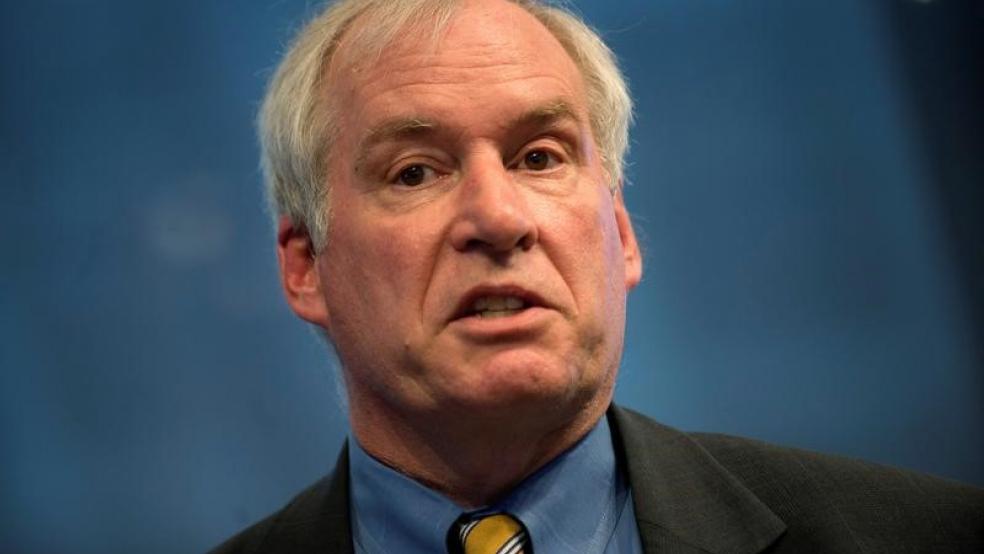CONCORD, N.H. (Reuters) - The Federal Reserve should raise interest rates again if data from the second quarter confirms the U.S. labor market is near full strength and inflation is on track to accelerate, Boston Fed President Eric Rosengren said on Thursday.
The comments by Rosengren, a voting member this year on the Fed's rate-setting committee, point to growing pressure within the U.S. central bank to raise rates in the coming months.Rosengren said a government report on employment during April suggested the country was still closing in on full employment, while inflation appeared also to be heading higher."If the economic data that come in over the course of this quarter confirm these trends, it will be appropriate to continue the gradual normalization of monetary policy," Rosengren said in prepared remarks, using the term U.S. central bankers employ for interest rate hikes.The Fed is scheduled to review monetary policy at a June 14-15 meeting. Afterward its next policy meeting is July 26-27. Speaking before the Greater Concord Chamber of Commerce, Rosengren said wage growth appears to be accelerating and the unemployment rate at 5 percent is close to his 4.7 percent estimate of a full-strength labor market.Rosengren repeated his view that investors in financial markets are underestimating how close the economy is to requiring more rate hikes. The Fed in December raised its target range for overnight bank lending rates by a quarter point, ending seven years of near-zero rates. Prices on futures contracts for the Fed's target range suggest investors expect only one hike this year, likely in December. But Fed policymakers signaled in March two increases would probably be needed. "The market remains too pessimistic about the fundamental strength of the U.S. economy, and the likelihood of removing monetary accommodation is higher," Rosengren said. (Reporting by Timothy Mclaughlin in Concord, N.H.; Additional reporting by Jason Lange in Washington; Editing by Meredith Mazzilli)Fed will need to hike if second-quarter data points to stronger economy: Fed's Rosengren

Keith Bedford



